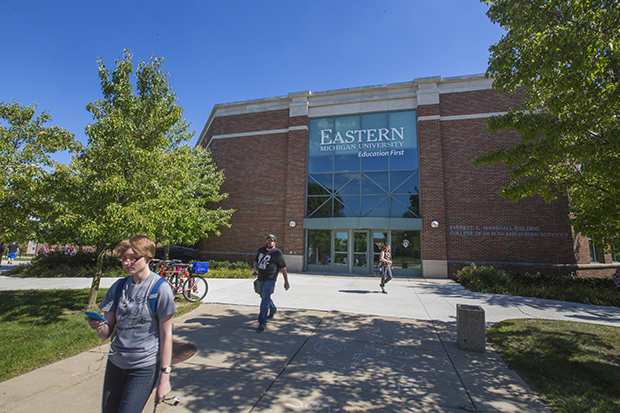Additional Information

Program Information
Get more information on the aging studies programs.

About
Read the mission and vision statements for the aging studies program.

Scholarships
Find out about scholarship options for aging studies students.
Founded in 1976 by EMU faculty and professionals in the field of aging, the aging studies program meets the diverse educational needs of students interested in issues of aging. Our interdisciplinary program emphasizes a life course perspective and addresses realities and myths of growing old. The result is an education that enhances the ability to work with or on behalf of older people effectively and compassionately.
The program is administered through a committee composed of faculty from the following disciplines:
As the number of older Americans increases, the ability to effectively and compassionately serve elders will prove invaluable to professionals from a wide range of disciplines. The diverse needs of the older population have created a demand for aging specialists in such disciplines as:
In all of these disciplines, aging specialists can help redefine how society views old age. Colleges and universities cannot prepare students quickly enough to satisfy the growing need for professionals in the field of aging.
To meet the diverse needs of the older population, the field of aging requires professionals to play a variety of roles. AGHE (2004) identifies seven roles that gerontologists may play:
In the past, social work practice was largely confined to the areas of child welfare, mental health and substance abuse. However, the aging of the American population has created a growing need for social workers who specialize in providing services for older adults. Gerontological social workers may run support groups for the adult children of aging parents. They may also assess, coordinate and monitor services such as housing, transportation and long-term care.
The settings in which gerontological social workers practice include hospices, hospitals, nursing and personal care facilities, individual and family service agencies and local governments. Regardless of their field of practice, employment opportunities are expected to be favorable for social workers in the coming years. However, job prospects may be especially good for those with a background in gerontology.

Get more information on the aging studies programs.

Read the mission and vision statements for the aging studies program.

Find out about scholarship options for aging studies students.